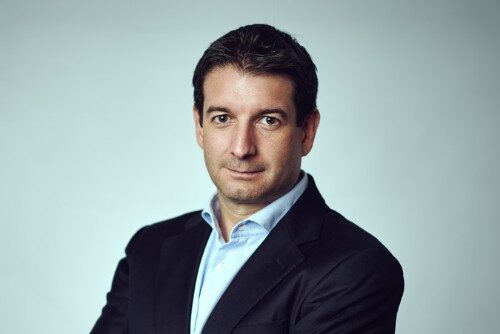Fake games are undermining the trust between players and casinos. James Elliott, Gamecheck Founder, tells Edward Bonello how the company’s independent seal of authenticity is setting a new standard for fair play, helping to reassure players.
As the gaming industry continues to grow from strength to strength, it has also led to fierce competition. But one emerging threat now risks undoing years of reputation-building for legitimate operators. This threat is fake games which, while sporting a sleek and attractive veneer, can fool and trap the inadvertent player.
Enter Gamecheck, a one-year-old startup on a mission to safeguard fairness and restore trust in the iGaming industry through its revolutionary seal of approval. Company Founder James Elliott explains how the company is helping clean up the online casino landscape by certifying genuine games.
“Fake games, which often mimic legitimate titles, are increasingly infiltrating the market. They are dressed up with familiar elements, characters and polished designs. But beneath the surface, their core is manipulated, and fails to respect the industry RTP (return to player) norms,” Mr Elliott starts off.
“Once the RTP is tampered with, the outcomes are rigged and the entire experience is weighted against the player. These illicit games often target the most vulnerable gamblers, individuals least equipped to detect deception and who are most likely to continue playing regardless of the odds. Behind these games we don’t find amateur fraudsters, but organised criminal syndicates that are using stolen branding and technical manipulation to prey on addiction.”
While the majority of operators in the industry act legitimately and in good faith, the existence of these fraudulent products undermines trust across the industry’s ecosystem.
“That is where Gamecheck steps in, providing an independent verification of games and casinos. By offering a seal of approval, Gamecheck is able to reassure players that what they see is authentic, fairly operated and aligned with a commitment to trust,” he explains.
One of the distinguishing features of Gamecheck is its ability to provide a tool that serves both consumers and the industry. Players are provided with peace of mind before engaging with a casino. Operators, on the other hand, get an extra layer of legitimacy that can be showcased directly to their customer base, strengthening long-term relationships. This dual purpose has allowed Gamecheck to carve out a unique niche for itself, bridging the gap between user protection and business credibility.
The Gamecheck process of verification is deliberately straightforward. Operators can obtain the Gamecheck seal by visiting the company’s website, entering their casino’s URL and validating their establishment within minutes.
“It’s as simple as that,” Mr Elliott reassures operators. “Given our constant monitoring of the gaming landscape, we are capable of providing our seal of approval in real time, making the process for casinos to get validated really easy and efficient.”
If a game, or a supplier, is not already in the system, a request for verification can be submitted and the Gamecheck team will conduct a thorough investigation. Investigations are backed by technical expertise and supported by legitimate game providers, who have every interest in exposing unauthorised use of their products. Findings are published transparently on the platform, ensuring clarity for both players and operators.
The tech that underpins the Gamecheck seal is also an important part of its effectiveness. Because it is dynamic, real-time and QR-enabled, it’s resistant to manipulation. Unlike static seals that can be copied and pasted onto illegitimate sites, the Gamecheck indicator is directly linked to their system. This ensures that any attempt at forgery is instantly revealed, protecting the integrity of the certification and making it trustworthy at scale.
“For players, this verification can be checked through a dynamic seal embedded in the casino site. The seal is not a static badge but a live indicator of status, and it is linked to a QR code that can be scanned instantly. In addition to website integration, Gamecheck has released an app that allows users to follow casinos and receive notifications whenever new results or changes are published,” Mr Elliott adds.
Another layer of strength lies in the company’s insistence on recurring certification. Fraud in the sector remains a growing and ever-evolving phenomenon, as ill-intentioned actors frequently adapt their methods to slip through cracks in oversight. By scheduling ongoing checks – daily, weekly, or annually – Gamecheck ensures that validation is not reduced to a simple box-ticking exercise. Instead, it becomes an ongoing commitment, which is particularly important in a digital environment.
“Our seal is a recurring process that can be withdrawn at any given moment if malpractice is detected. This ensures ongoing accountability that prevents an initial validation from being used to cover for future malpractice,” he warns.
The corrective element of Gamecheck’s work is equally valuable. When casinos discover that their supply chain has been compromised with fake games, the reputational damage can be considerable. By identifying problems quickly and helping casinos get back on track, Gamecheck acts both as an auditor for fraud and as a partner. This remedial role has already helped casinos in different jurisdictions to protect their customer relationships and salvage trust before it was lost.
The company has found particularly strong traction in regions where regulation is absent or inconsistent. Latin America, for example, has been a key market, where players often lack oversight from a local regulator.
“In such cases, Gamecheck fills the gap by acting as a de facto guardian to users, offering the transparency that licensing authorities might provide elsewhere. Beyond detection, Gamecheck has also played a corrective role, helping casinos that unknowingly acquired compromised games to identify the issue and restore their integrity,” Mr Elliott continues.
The company’s expansion into under-regulated regions highlights another critical aspect of its mission. In such jurisdictions, players are left with very little recourse if they encounter fraudulent games. Gamecheck’s independent seal fills that void. “Leveraging the powers of technology, transparently and speedily, the service can deliver what most regulators cannot, and that is instant and continuous assurance,” he says.
As he reflects on the company’s journey, it is clear that the seal is not just a useful tool but an emerging benchmark for fair play. And the response from the industry has been very encouraging. After all, by making it easier to identify unauthorised use of legitimate games, Gamecheck indirectly supports developers whose intellectual property is often targeted by counterfeiters. For these companies, the seal provides an ally in the fight against theft, preserving both their brand integrity and their revenue streams. For affiliates, meanwhile, it offers a reliable reference point when recommending casinos to their audiences, further extending the seal’s influence across the value chain.
“The iGaming sector often evolves faster than legislation, so the ability to verify in real time, to update continuously and to uncover malpractice is becoming indispensable. Gamecheck embodies a new standard of transparency and accountability in iGaming, empowering players to check before they play and giving operators a way to prove their legitimacy.”
Trust, ultimately, is the most valuable currency in iGaming. For years, operators have invested heavily in compliance, responsible gaming programmes and customer care initiatives to ensure their reputations remain strong. Fake games cut directly against this investment, threatening to undo hard-earned credibility with just a handful of manipulated titles.
“We are helping to restore confidence where it is most at risk, maintaining the delicate balance on which the industry’s long-term sustainability depends,” Mr Elliott argues.
As digital entertainment continues to expand globally, with new jurisdictions opening to online gambling and millions of players entering the market for the first time, the need for reliable verification mechanisms looks set to grow.
“Gamecheck’s early success shows that there is both a demand and a responsibility for solutions that protect users while supporting operators. In that sense, the seal of approval is more than just a badge. It is a statement of intent that fair play and transparency are not optional extras, but central pillars of the industry’s future,” he concludes.
This interview first appeared in the iGaming Capital 2026 edition. For more information on the iGaming Capital 2026 edition or on www.iGamingCapital.mt, get in touch via email on info@contenthouse.mt or on +356 2132 0713. Additionally, readers can visit the iGaming Capital portal at www.iGamingCapital.mt to stay updated on the latest developments in Malta’s iGaming industry.
Featured Image:





